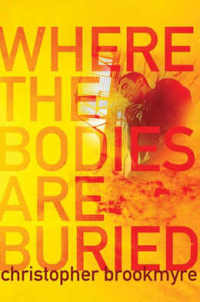Shake Off by Mischa Hiller
 Monday, August 13, 2012 at 9:11AM
Monday, August 13, 2012 at 9:11AM 
Published by Mulholland Books on August 14, 2012
Intifada has its origin in an Arabic word meaning "to shake off"; hence the title. By the novel's end, shaking off his past (and possibly his codeine addiction) will be Michel Khoury's greatest challenge.
Although he carries a Lebanese passport (among others), Khoury is a Palestinian. He was born in a refugee camp in Beirut where his parents were murdered by Lebanese Phalangists. As a result of that experience (as well as his admiration of Primo Levi's writing), Khoury comes to identify with Jewish victims of atrocities and to understand that "no suffering is unique" while at the same time resenting the loss of his own feeling of uniqueness.
While Khoury is in foster care, he is recruited by a shadowy figure named Abu Leila, given an education, and trained in the techniques of espionage. Leila tells Khoury that he will be working as an undercover PLO agent. Although he has trained Khoury to be wary of "the competition" (Israel), Leila clearly has his own agenda and seems to be harbor some resentment of Arafat's approach to leadership.
Things go wrong for Khoury after he takes delivery of an envelope in London and brings it to Leila in Berlin. Although the contents of the envelope are a mystery to Khoury (and to the reader), it soon becomes apparent that the envelope will create trouble for both men. The mystery is a good one; I was surprised by the revelation that comes when the envelope is finally opened.
Mischa Hiller adds a love story (and a fling story) to flesh out this novel of intrigue, although the love story is uninspired, standard fare for a spy novel. Hiller avoids the obvious ending that I feared in favor of a more nuanced resolution. Apart from Khoury, the characters lack depth. Khoury, on the other hand, has an interesting and credible background. The demons that drive him make him a sympathetic character.
Although the characters express political opinions, I give Hiller credit for telling a good story without overtly pushing a political point of view. There is a political message in the story, but it is delivered with subtlety and even-handedness. Unlike some spy novels set in the Middle East, Shake Off neither distorts nor sensationalizes history.
Hiller doesn't waste words; no subplots are added that would detract from the novel's pace or interfere with the mounting suspense. He tells his tale in workmanlike prose. Still, it is the plot and the protagonist rather than the prose that make Shake Off worth reading.
RECOMMENDED



